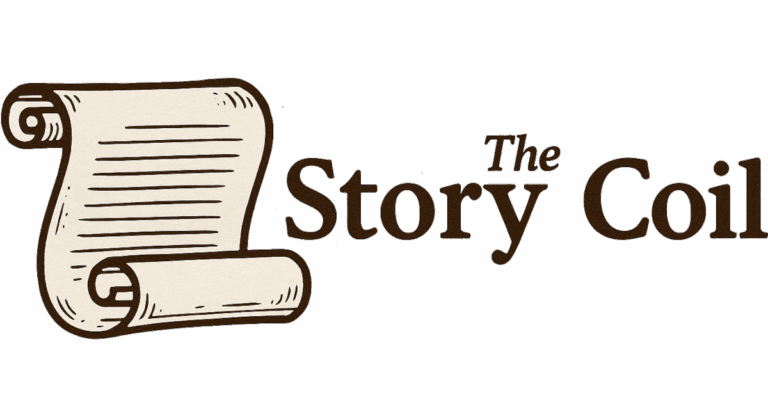In the pre-internet age, faking a sick day was an art form that required little more than a croaky voice and a vague mention of a “24-hour bug.” But in the era of social media, where every moment is a potential post, playing hooky has become a high-risk, high-stakes game. One manager, after his employee called out with a “terrible flu,” didn’t need a doctor’s note to confirm his suspicions. He just needed to open TikTok.
As a manager, you develop a sixth sense for suspicious sick days, especially on the Friday of a long weekend or, in this case, the Thursday of a huge local music festival. When my junior employee Chloe called out with a “deadly flu,” I had my doubts, but there was nothing I could do. That is, until she appeared on my ‘For You’ page, looking very much alive and covered in glitter.
The ’24-Hour Flu’
On Thursday morning, I got a text from my marketing assistant, Chloe. “Sooo sorry David, won’t be in today. Woke up with a horrible flu, fever, chills, the works. Feel like death. Will hopefully be back on my feet by Monday.” It was a classic “I want a four-day weekend” message. The problem was, our team was on a massive deadline, and the three-day music festival that half the city attends started that afternoon. I just texted back, “Sorry to hear that. Rest up.” My team and I then had to spend the rest of a very stressful day scrambling to cover her work.
For You Page, and For Me to See
That evening, I was at home, unwinding from the chaotic day by scrolling through TikTok. I was mindlessly swiping through videos when one popped up that made me freeze. It was a local influencer, doing a “first impressions” vlog from the festival. And who was dancing enthusiastically in the background, right behind the influencer’s shoulder? Chloe. My “deathly ill” employee. She was wearing a neon crop top, had glitter all over her face, and was laughing while holding a giant, brightly colored cocktail.
I was so stunned by the sheer audacity that I almost dropped my phone. I quickly screen-recorded the video. Then, curiosity got the better of me. I searched for her personal TikTok account. It was public. She had already posted three videos from the festival herself. One was a clip of the band. Another was a shot of her drink. But the third one was the masterpiece. It was a video of her and her friends doing a popular dance trend, with the on-screen caption: “Best sick day ever! 😉 #FestivalVibes #YOLO”
A Very Specific Performance Review
I didn’t call her. I didn’t text her. I just saved the video and waited. She was, of course, still “sick” on Friday. The following Tuesday was our scheduled one-on-one performance review. She walked in, all smiles. “Hi David! So glad to be back. That flu was a nasty one, but I’m 100% now!”
“Glad to hear it, Chloe,” I said, my voice perfectly neutral. “Have a seat. Let’s talk about your performance.” I went through the usual metrics. I talked about the importance of meeting deadlines and the stress her absence had placed on the team. And then I leaned forward.
“And finally, let’s discuss judgment and professionalism,” I said. I swiveled my laptop around to face her and hit play.
On the screen, her own TikTok video started playing. The one of her dancing. The one with the caption, “Best sick day ever! 😉”
The color drained from her face. I have never, in my entire career, seen someone look so utterly and completely busted. She just stared at the screen, her mouth opening and closing with no sound coming out.
I didn’t yell. I just let the video finish, then turned the laptop back around. “Your judgment in this matter was exceptionally poor,” I said calmly. “Lying to your team is not acceptable. This is your first and only formal written warning. The next time you call in sick, I suggest you stay off social media.”
Chloe was mortified. She’s been a model employee ever since—never late, never missing deadlines, and miraculously, she hasn’t had a single ‘flu bug’ on a Friday. Some of my manager friends think I should have just fired her for dishonesty. I felt that for a young employee, the formal warning and the sheer, soul-crushing humiliation of being caught was a more effective lesson. AITA for not firing her and using her own TikTok against her instead?
In the digital age, the old adage “the truth will out” has been updated: the truth will be posted, tagged, and algorithmically served to the one person you don’t want to see it. This is a story of a lie that was as lazy as it was public. The manager’s response was a masterclass in modern management—he didn’t fly into a rage; he simply gathered the undeniable, self-incriminating evidence and presented it in the most professional, and therefore most devastating, way possible.
What do you think, readers? Was the manager’s TikTok takedown a fair and effective way to teach a lesson, or should he have just fired the employee on the spot for lying? Let us know!


















0 COMMENTS